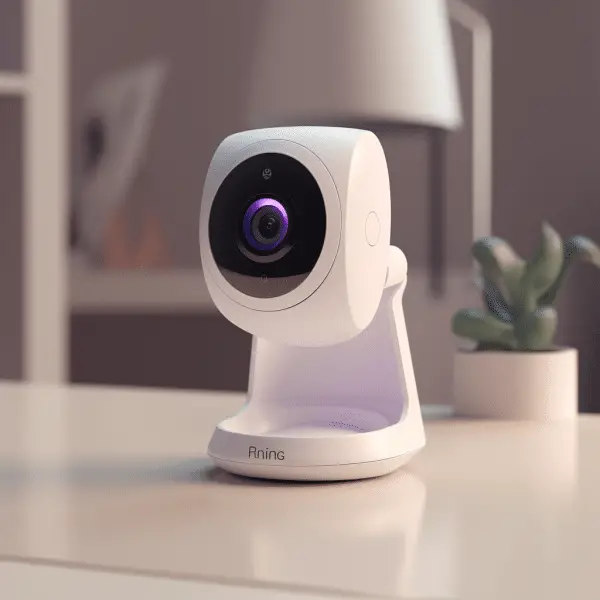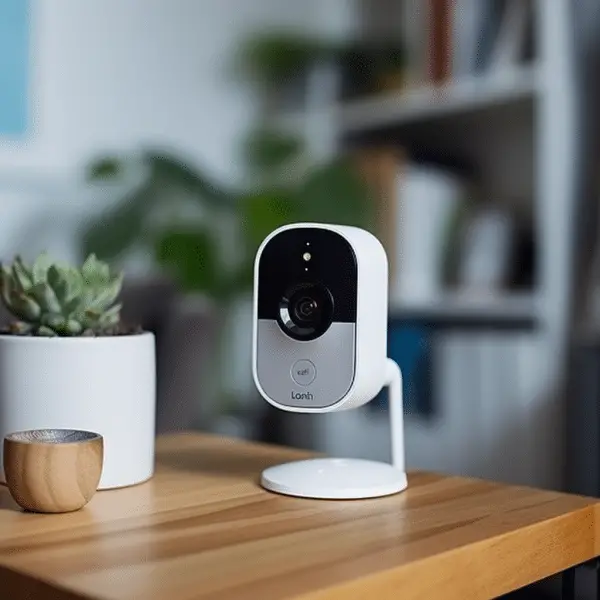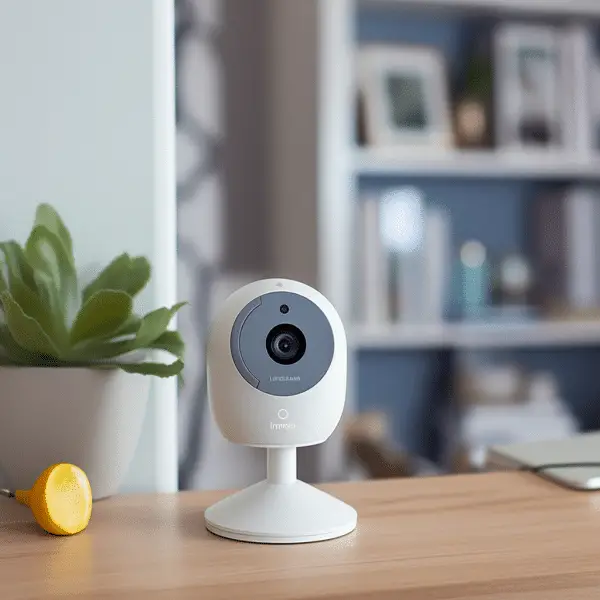Introduction
Are Ring Cameras Secure: In the era of smart homes and interconnected devices, security has become a paramount concern. One such device that has gained significant popularity is the Ring camera, a product of Ring Inc., a company owned by Amazon. These cameras, often used as doorbell cameras, provide real-time video surveillance and allow homeowners to monitor their property remotely.
While Ring cameras offer a layer of physical security, their digital security has been a topic of debate and scrutiny. There have been instances of unauthorized access and privacy concerns, raising questions about the overall security of these devices. To delve into the security aspects of Ring cameras, examining both their strengths and potential weaknesses.
We will explore the technology behind Ring cameras, their encryption methods, and the company’s response to security breaches. We will also discuss the steps users can take to enhance their Ring camera’s security. By the end of this exploration, we aim to provide a comprehensive understanding of the security of Ring cameras, enabling users to make informed decisions about their home security systems.

Can Ring cameras be hacked?
The most common reason why a Ring device is vulnerable to cyberattacks is its connection to your home network. A hacker can access and compromise this connection when the data moves between the application and the gadget since their communication lacks end-to-end encryption.
In the interconnected world of smart devices, the question of security is always pertinent. Ring cameras, popular for their convenience and functionality, are not immune to this concern. The question, “Can Ring cameras be hacked?” is a valid one, and the answer is, unfortunately, yes.
Like any internet-connected device, Ring cameras are susceptible to hacking. There have been reported instances where hackers have gained unauthorized access to these devices. These breaches typically occur due to weak or reused passwords, lack of two-factor authentication, or through compromised third-party apps.
Once hackers gain access, they can potentially view live feeds, listen to conversations, and even communicate through the device. This not only compromises the security of the home but also raises serious privacy concerns. However, it’s important to note that Ring Inc. has taken steps to mitigate these risks. The company has introduced features like two-factor authentication and end-to-end encryption to enhance the security of their devices.
Can Ring cameras be trusted?
Ring has a number of safeguards in place to protect your data and privacy, including end-to-end encryption of all video and two-factor authentication as standard for logging into your account.
The question of trust in technology, especially in devices like Ring cameras that play a crucial role in home security, is of utmost importance. Can Ring cameras be trusted? The answer to this question is multifaceted.
Ring cameras offer a range of features that enhance home security, such as real-time video surveillance, motion detection, and two-way communication. These features have proven to be beneficial for many users, providing an added layer of security to their homes. However, trust in Ring cameras extends beyond their functionality. It also encompasses digital security and privacy. There have been instances of Ring cameras being hacked, leading to unauthorized access. This raises valid concerns about the digital security of these devices.
In response to these concerns, Ring Inc. has implemented several security measures, including two-factor authentication and end-to-end encryption. These measures aim to enhance the digital security of Ring cameras and protect against potential breaches. Privacy is another critical aspect of trust. Ring Inc. collects data from its users, and there have been concerns about how this data is used and who has access to it. Users must be aware of Ring’s data policies and make informed decisions based on their comfort level with these policies.
Are Ring cameras secure?
Without sufficient protection, Ring cameras can be hacked. Generally, devices that can connect to the internet can be hacked. Hackers usually share Ring doorbell hacks and exploits online.
Ring cameras, products of Amazon-owned Ring Inc., have become increasingly popular in the realm of home security. They offer real-time video surveillance, allowing homeowners to monitor their properties remotely. However, the question of their security is a valid concern.
From a physical security perspective, Ring cameras can be a valuable asset. They provide a visual deterrent to potential intruders, and their motion detection and two-way communication features enhance their effectiveness.
However, the digital security of Ring cameras has been a subject of debate. Like any internet-connected device, they are susceptible to hacking. Hackers have accessed live broadcasts and communicated through the device.These breaches typically occur due to weak or reused passwords, lack of two-factor authentication, or compromised third-party apps.
Can someone see your Ring camera?
If Ring cameras, doorbells, and Ring Alarm are present at a Location, all Shared Users can access all the cameras and doorbells there by default. This is, however, at the Owner’s discretion. An Owner can limit any Shared or Guest User’s access to cameras and doorbells at their Location.
Ring cameras are designed to provide homeowners with a sense of security by allowing them to monitor their properties remotely. However, the question of who else can see your Ring camera is a critical one.
By design, only the owner of the Ring camera and those they have shared access with can view the camera’s feed. The Ring app lets family and friends monitor live footage and receive alerts.However, like any internet-connected device, Ring cameras are susceptible to hacking.
If a hacker gains unauthorized access to your Ring camera, they could potentially view your live feed, listen to conversations, and even communicate through the device. This typically occurs due to weak or reused passwords, lack of two-factor authentication, or compromised third-party apps. In response to these concerns, Ring Inc. has implemented several security measures, including two-factor authentication and end-to-end encryption. These measures aim to protect against unauthorized access.
Is Ring safe for privacy?
And while it’s good Ring says they don’t sell your personal information, they do say they can share your information with a number of third parties for things like advertising, marketing, government and law enforcement requests, and with their business affiliates (which could potentially be a decent number of companies.
Privacy is a significant concern in the era of smart devices, and Ring cameras are no exception. While these devices offer enhanced home security, questions about their impact on privacy are valid and important.
Ring cameras capture video and audio data from their surroundings, which can include sensitive and private information. If not adequately secured, Ring’s servers could expose this data to unauthorized parties. Ring cameras have been hacked, exposing privacy.
In response to these concerns, Ring Inc. has implemented several security measures, including two-factor authentication and end-to-end encryption. These measures aim to protect user data and prevent unauthorized access.
However, privacy problems go beyond hacking. Ring’s data policies are questioned. The corporation shares user data with law police and others. Ring says authorities can only watch video clips provided to the Neighbors app, but this raises privacy concerns.
What security features does Ring offer?
Ring cameras offer multiple security features, such as encrypted communication, two-factor authentication (2FA), and the ability to set up personalized security alerts. Additionally, they provide regular software updates to address vulnerabilities and enhance device security.
Ring Inc., an Amazon-owned company, offers a range of security features in its cameras to enhance home security and protect user data. These features aim to provide a comprehensive security solution, combining physical security with digital security measures.
From a physical security perspective, Ring cameras offer real-time video surveillance, allowing users to monitor their properties remotely. Motion detection warnings and two-way communication let users talk to visitors without opening the door.
In terms of digital security, Ring has implemented several measures to protect user data and prevent unauthorized access. These include:
Two-Factor Authentication (2FA): This feature adds an extra layer of security by requiring a second form of verification, usually a code sent to the user’s mobile device, in addition to the password.
End-to-End Encryption: Ring has introduced end-to-end encryption to secure video streams. Video is secured from capture to watching device, limiting illegal access.
Regular Software Updates: Ring regularly releases software updates to address any identified security vulnerabilities and enhance the overall security of their devices.
Control Center: This feature in the Ring app allows users to manage their connected devices, shared users, and security settings in one place.
Is the footage from Ring cameras encrypted?
Ring utilizes “in-transit” and “at-rest” encryption by default. In-transit encryption encrypts data from your Ring device to Ring’s servers. Ring’s servers store data with at-rest encryption. This encryption protects your video footage from illegal access.
Ring added end-to-end encryption to address privacy concerns. From Ring camera capture to viewing device, this feature encrypts video data. Even if someone intercepted the data during transmission, they couldn’t watch the video without the user’s enrolled mobile devices’ unique encryption keys.
Are Ring cameras hacked?
Few Ring cameras were compromised via weak passwords or 2FA.These instances emphasize security best practices.
Ring cameras are vulnerable to cyberattacks like other internet-connected devices. Reports of Ring cameras being hacked raise security concerns.
In 2019, many allegations of hackers accessing Ring cameras made headlines. Hackers may watch live streams, listen to conversations, and even talk over the gadget. Weak or repeated passwords and absence of two-factor authentication caused these instances.
An internet data leak in 2019 exposed over 3,000 Ring users’ personal information. The leaked login credentials could allow unwanted access to Ring cameras.
These incidents have led to criticism of Ring’s security measures and have prompted the company to take steps to enhance the security of their devices. In response, Ring has introduced features like two-factor authentication and end-to-end encryption, and has emphasized the importance of strong, unique passwords.

Conclusion
Ring cameras, like any other smart device, have their strengths and vulnerabilities. They provide an additional layer of physical security, allowing homeowners to monitor their properties remotely. The technology behind these devices is impressive, with features such as real-time video surveillance, motion detection, and two-way communication. However, the digital security of Ring cameras secure has been a subject of concern. While Ring has taken steps to address these issues, such as introducing two-factor authentication and end-to-end encryption, the responsibility of security also falls on the users. Privacy issues about Ring cameras are also important. Ring users must be aware that third parties may access their data. Ring cameras can be secure, but their security depends on user use and maintenance.

